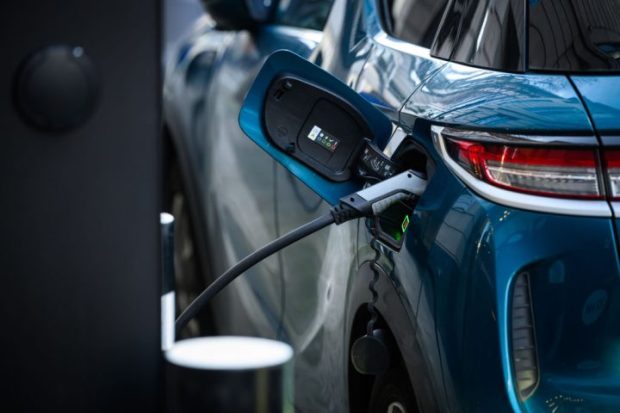The emergence of Covid provoked a worldwide economic crash. That lasted a mere four weeks. By the time western countries were locking down, a bull market had begun afresh. Through months of lockdowns, soaring case rates and death rates, shares were not just rebounding but marking new highs – firstly involving tech shares and online retailers which had done well from social distancing, but then pretty much anything. The arrival of the first vaccine phase 3 trial results in November 2020 sent shares spinning upwards, yet the emergence of the Alpha and Delta strains didn’t seem to do any harm.
And now that economies seem finally to be putting Covid behind them? In Britain, plan B has ended. Denmark has ditched its Covid restrictions entirely. The Netherlands is relaxing its own regime. The omicron wave is petering out, and beginning to look like the ‘natural vaccine’ which some claimed it was from the beginning: highly infectious but much less severe. Yet markets, perversely, seemed to pick up a different story. Tech shares went deep into a correction. The S&P500 may have recovered in recent days, but it is still heavily down on where it was at the end of 2021. Only the FTSE100 seems to have had a good time – but then it has underperformed for years, reviving now mostly because of its domination by plodding, defensive shares.
It is true that so long as Vladimir Putin’s tanks remain parked on the Ukraine border it is hard to feel positive about the world. Were they to cross the border and provoke a round of serious sanctions, Europe could well end up the loser – were Russia to cut off the gas supplies, it could send energy prices soaring to even greater heights. Then again, every day that an invasion of Ukraine fails to happen, the less likely it becomes – and we are already four weeks beyond the date it was expected.
What really spooked the market was Federal Reserve Chairman Jay Powell, who made it clear that interest rates would rise. Yet rates are rising precisely because the global economy is recovering, with demand for energy and natural resources soaring, feeding through into consumer inflation. Recent US GDP figures showed that the economy expanded by 5.7 per cent in 2021, the strongest rate since 1984. What’s more, the pace is increasing – with an annualised rate of growth of 6.9 per cent in the final quarter. In any case, interest rates will remain at near 400 year lows. No-one expects them to go up to anything like the levels they were in the 1990s. That ought to be good news. Yet investors flee the moment that central banks even make the suggestion that they are thinking of withdrawing the punch bowl of cheap debt. Markets have become so addicted to stimulus packages that they can’t seem to live without them.
It has created the perverse situation where good economic news has become bad investment news and vice versa. If the economy is on the slide, the markets begin to expect that another stimulus package is on the way – and share prices rise. If the economy rebounds, then investors begin to fret about the withdrawal of stimulus. Markets and the economy are not merely running out of kilter; to some extent they have become counter-cyclical.
The origins of this can be traced to former Federal Reserve chairman Alan Greenspan and his ‘Greenspan put’ – the practice of trying to prop up markets with sharp interest rate cuts and quantitative easing. Rather than stimulating the economy, however, the main effect has been to inflate speculative bubbles in asset prices. Tech companies which do not make profits and in some cases look unlikely ever to make profits are bid up to extraordinary values which can only be sustained in an ultra-low interest rate environment. Housing markets march upwards – in Britain’s case thanks not just to low interest rates but also to government initiatives to underwrite high loan-to-value mortgages and thrust bungs directly into the hands of first time buyers.
Over the years, what was intended as a one-off response to the 1987 crash and the Asian crisis on 1998 has formed an expectation among speculators that governments and central banks will always try to bail out markets if the sense of crisis is great enough. Speculators have thus been given a perverse incentive to create a sense of crisis – in the hope that it might help to keep the stimulus ball rolling. Fear, it might be said, provokes reward.
There emerges, then, a weird alignment of interests between speculators and catastrophists. For speculators, it becomes in their interests for crisis to prevail, for the pandemic never to end, for Putin’s tanks to be mustered at the Ukraine border – or more mundanely for a poor set of jobs figures or disappointing GDP statistics.
What has kept central banks from raising rates or winding in quantitative easing over the past decade is doubt. We still have the monetary policy devised in the depths of the 2008/09 crisis because every time it seemed as if it might be time to normalise policy, rate-setters just had enough doubt to ask: is this really the right time to be raising rates or should we just wait another month or two and see if the economic signals are better then? Come crisis, and we get very rapid reaction with stimulus policies, but come recovery and the normalisation process is agonisingly slow.
It won’t take much, either, for Federal Reserve Chairman Jay Powell to go back on his suggestion that interest rates might be raised at the Fed’s March meeting. The Ukraine situation may not have been resolved, there may be another variant of Covid, we may have had a disappointing set of economic figures, markets may have slid further – for anyone who wants to look hard enough there will be a crisis, or potential crisis, to be seen – because there always is. There will never be an occasion when all is clear on the economic horizon. And you can be sure that those with a vested interest in the maintenance of stimulus will be lobbying hard for it.
But we should ask where is it all taking us, the era of permanent central bank stimulus? We are heading in the opposite direction from what governments say they want to achieve: greater equality, to lessen the gap between rich and poor, to ‘level-up’. Perpetual stimulus is making those with assets ever richer, at the expense of those who do not have assets. The rich get richer, the poor get inflation. It turns financial speculation not quite into a one-way bet but certainly into a game where the dice are loaded in your favour. It is an economic system which works on the principle of laissez faire when markets are on the way up – and interventionism when they are on the way down. At some point there is going to be irresistible demands to tackle the unfairness of it all.
There is a pretty simple solution, which is not to intervene to prop up markets – to tell investors and speculators that they are on their own, caveat emptor and all that. If you make money, then bully for you; if you lose it, well, that’s capitalism, folks. At the moment governments and central banks swallow the argument that we can’t allow markets to crash because it would damage the economy and everyone would suffer. But is that true? The economy didn’t suffer from the 1987 crash, and nor did it from the dotcom crash of 2000 to 2003. On the contrary, economic growth carried on independent of losses in the City or on Wall Street. The dotcom crash didn’t even do anything to hinder the development of the internet, which carried on regardless.
End the bailouts, end the stimulus packages and some will lose money. But the economy, and the world, would carry on spinning. It is just that it would be a lot fairer a world. What we have had for the past dozen years is crony capitalism, where governments and central banks act in the interests of a few, but disguise it as help for the many. It is time to end crony capitalism and make way for the real thing.
Got something to add? Join the discussion and comment below.
Get 10 issues for just $10
Subscribe to The Spectator Australia today for the next 10 magazine issues, plus full online access, for just $10.




















Comments
Don't miss out
Join the conversation with other Spectator Australia readers. Subscribe to leave a comment.
SUBSCRIBEAlready a subscriber? Log in